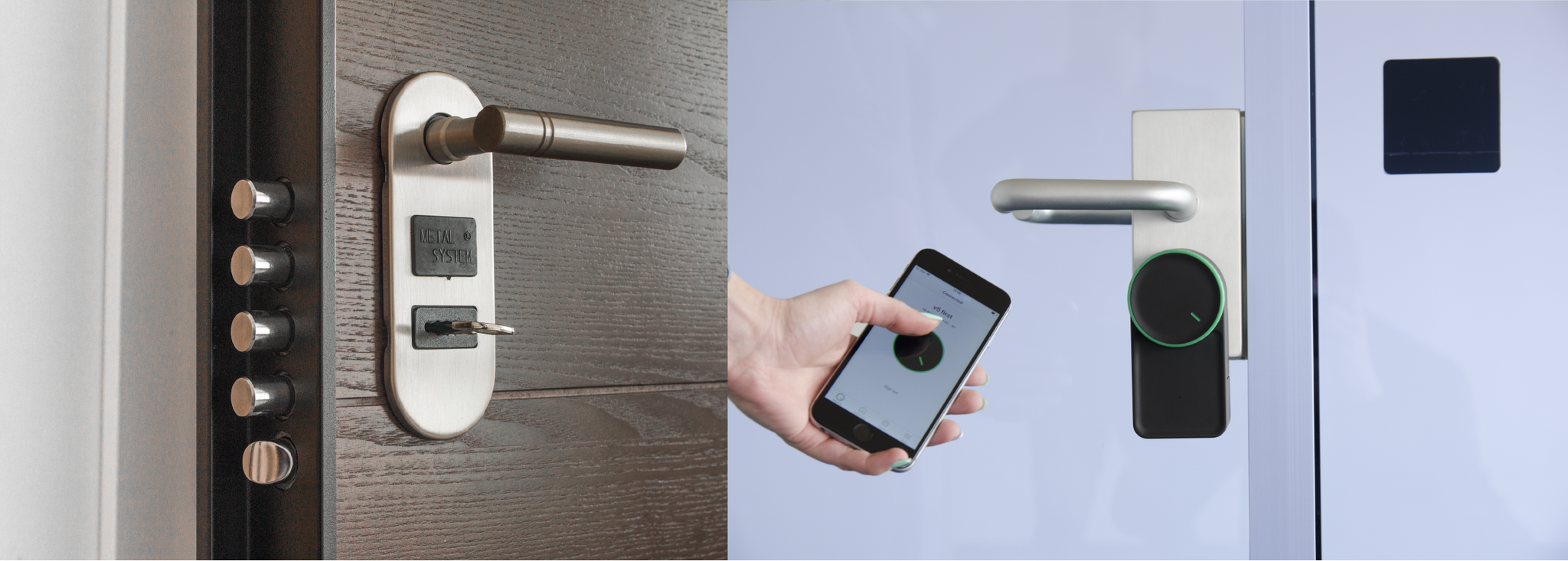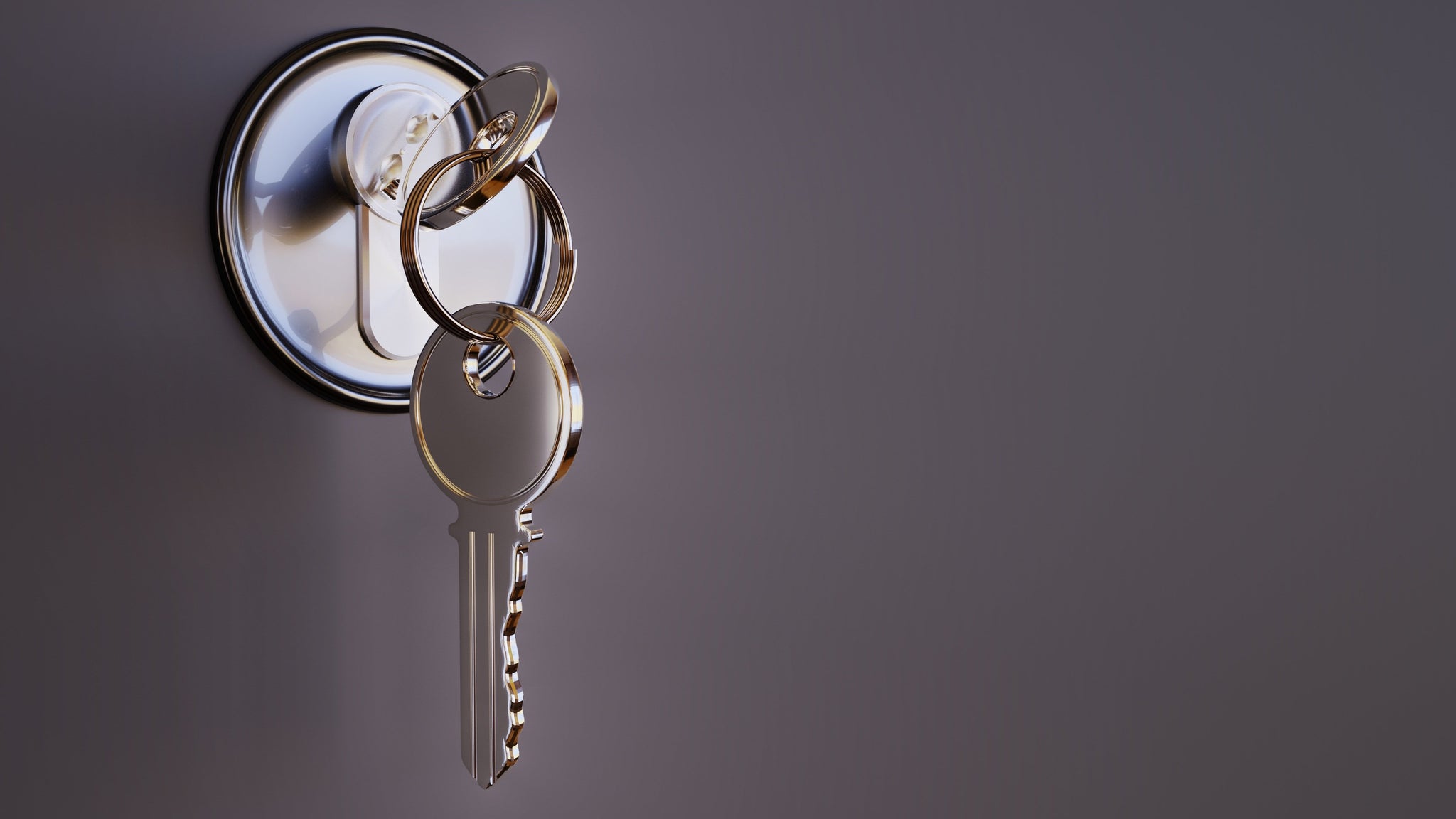Why are smart locks actually safer than traditional locks?
Did you know? There is no urge to stick to old habits, especially when it comes to home security. The smart home trend can be quite intimidating and there’s no shortage of misinformation about automated security systems - but this doesn’t mean you should be missing out on the opportunities and benefits they bring. The following article presents a few arguments on what exactly makes smart locks your best pick in terms of security.
Traditional vs. Smart

Designed to ensure privacy and securing access, nowadays you’d find a lock on almost everything - from home’s front door to your smartphone. This goes to show how we, as a society, have come to value privacy and safety more and more over time. Choosing the right kind of door lock for yourself is, in our view, more important than ever.
Let’s first clarify the distinction between ‘smart’ and ‘traditional’ locks. Most people are not used to the term 'traditional' locks - we simply call them 'locks', essentially referring to the average door lock that is non-automated and has to be manually engaged. You rotate the key and a deadbolt locks your door - easy! On the other hand smart locks (in their simplest form) are automated versions of traditional locks or retrofitting accessories, which can be integrated into smart home systems. They too usually operate a traditional deadbolt - but the mechanism can be engaged and controlled remotely, which can bring many improvements to the overall home security experience.
Just like traditional locks, smart locks come in different shapes and forms. Some are enhanced by security cameras, keypads, touchpads, others may simply be remotely controlled directly from a mobile app.
Traditional locks - not as safe as we think
Despite what all of us would like to believe, most common locks are highly vulnerable to picking - an experienced burglar could snap a deadbolt and stage a break-in in only a matter of seconds. Unfortunately, your front door is not as secure as you'd think - it will, pretty much, only keep out the 'honest' criminals who are either not quite willing to push their luck or simply inexperienced beginners.
Yes - smart locks (like all smart-home devices), in order to exchange data between other smart home electronic devices, commonly use protocols such as Bluetooth, ZigBee, LoRa, NBIoT, and WiFi. Therefore anyone with a smart lock should definitely keep their apps and system updated and phone and passwords secured (I think we’d agree that a screen lock is pretty much a must these days). The electronic locks do not eliminate the risk of someone sweeping the key from under your doormat, picking your lock, or smashing their way in through your door - but if and when this happens your smart lock is able to immediately alert you about it, no matter where in the world you are.
While it is a common misconception that smart locks are easily 'hackable' (more on this later), the opposite is true - their connectedness and environment awareness makes for an extra security layer, enhancing the mechanics of your traditional locks. However, the opposite is true. A good example of that is Keymitt Smart Lock that is able to detect unusual activities and notify you even if you’re away from home.
Studies have shown that burglary tends to be an opportunistic crime. In other words, it is not likely that an intruder would have pre-planned to hack a smart lock’s complex encryption algorithms - as opposed to tampering with a standard door lock's deadbolt. It takes way more resources (skills and expensive computational power) to crack the encryption than to force a traditional door lock open.
You don't need to be always fishing for your keys
A well-thought out security system is offering you convenience while being prepared for the worst case scenarios. We've all had that morning where we are running late because we can't seem to remember the "safe" place we last left our keys.
According to the "Lost & Found Survey" by Pixie, a smart location solution for iPhones that uses augmented reality to actually SHOW the location of misplaced objects, this is a common occurrence with Americans spending 2.5 days a year looking for misplaced items.
Also in a situation of emergency the time it takes to find your keys and manually unlock the door could potentially make a high-risk situation worse.

A similar principle also applies to the old feeling of not being sure whether or not you left your door locked on your way out… Just think about it, are you really 100% sure your door is locked right now? Kitchen stove and iron are of course close contenders ;) Internet-connected devices allow real-time remote access to your smart lock (and other smart home products) over the Internet via a gateway so you can always look up their status. A traditional lock will remain in this ‘undetermined’ state until someone actually gets there and checks it - if you’ve experienced this you’ll agree it can get stressful.
Yet another feature may guarantee you’d never have to worry about going to bed without locking the door - just program your smart lock to auto-lock every day after 10pm and the responsibility is all taken care of.
Log records make life much easier
There are many advantages to having an entry log record. Being able to check who accessed your front door - at all times and from your smartphone is an important feature that only smart door locks can offer. This will let you monitor your door and be aware of what is happening there when you are away.
Smart devices definitely add convenience to one's life. Being able to remotely unlock the door for visitors, receive packages even when you're out of town, or even allow your dog sitter in, while you’re at work. Most importantly smart locks provide homeowners with round-the-clock peace of mind.
Smart locks are hard to hack.
Realistically, cracking the encrypted code of a keyless lock is not only extremely difficult - but also highly unlikely. Reputable smart locks rely on modern authentication, authorization and encryption technologies which, if integrated into your home security system, become an effective safety solution against thieves and intruders.
(To read more on this topic click here for our post on Common Misconceptions about Smart Locks)
Last but not least
Smart locks not only beat traditional locks in terms of versatility and convenience, but they are increasingly used as a home security enhancement. The fast pace of technological advancement has made many features, once seen as Sci-Fi in home security, now becoming readily available, something we can (and should) all benefit from.
From your home to your office, smart locks increased security and convenience will be a game changer in your everyday life. The ‘future of security’ is here - and it is great! Are you ready to put away your old keys and enjoy the comfort this high-tech product has to offer?
